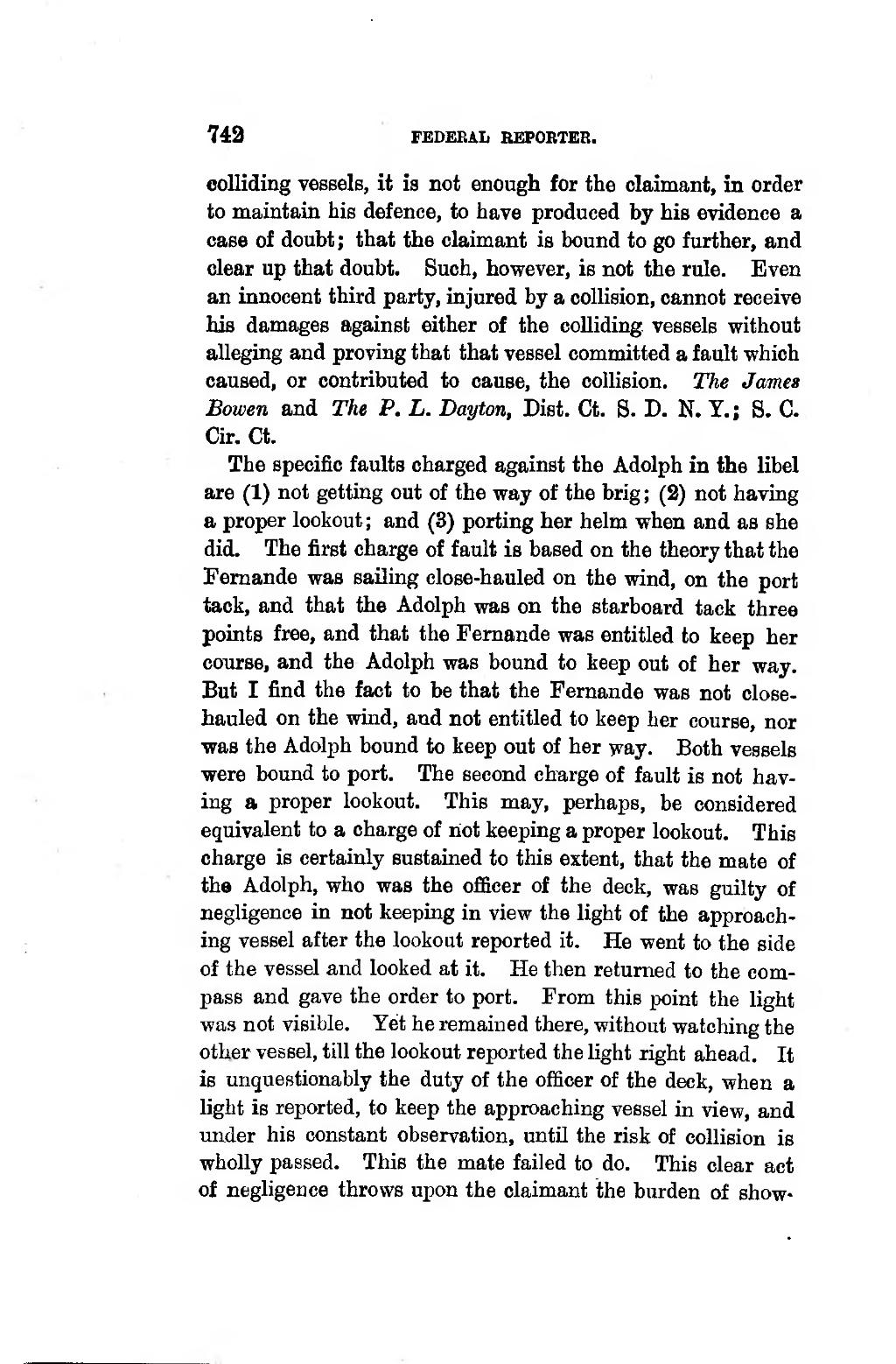742 FEDERAL REPORTER. �colliding vessels, it is not enough for the claimant, in order to maintain his defence, to have produced by his evidence a case of doubt ; tfaat the claimant is bound to go further, and clear up that doubt. Such, however, is not the rule. Even an innocent third party, injured by a collision, cannot reeeive lus damages against; either of the colliding. vessels without alleging and proving that that vessel committed a fault which caused, or contributed to cause, the collision. The James Bowen and The P. L. Dayton, Dist. Ct. S. D. N. Y.; S. C. Cir. Ct. �The specifie faults charged against the Adolph in the libel are (1) not getting out of the way of the brig ; (2) not having a proper lookout ; and (3) porting her helm when and as she did. The first charge of fault is based on the theory that the Fernande was sailing close-hauled on the wind, on the port tack, and that the Adolph was on the starboard tack three points free, and that the Fernande was entitled to keep her conrse, and the Adolph was bound to keep out of her way. But I find the fact to be that the Fernande was not close- hauled on the wind, aud not entitled to keep her course, nor •was the Adolph bound to keep out of her way. Both vessels were bound to port. The second charge of fault is not hav- ing a proper lookout. This may, perhaps, be considered equivalent to a charge of not keeping a proper lookout. This charge is certainly sustained to this extent, that the mate of th» Adolph, who was the officer of the deck, was guilty of negligence in not keeping in view the light of the approach- ing vessel after the lookoat reported it. He went to the side of the vessel and looked at it. He then returned to the com- pass and gave the order to port. From this point the light was not visible. Yet he remained there, without watching the other vessel, till the lookout reported the hght right ahead. It is unquestionably the duty of the officer of the deck, when a light is reported, to keep the approaching vessel in view, and under his constant observation, until the risk of collision is wholly passed. This the mate failed to do. This clear act of negligeuce throws upon the claimant the burden of show ����
